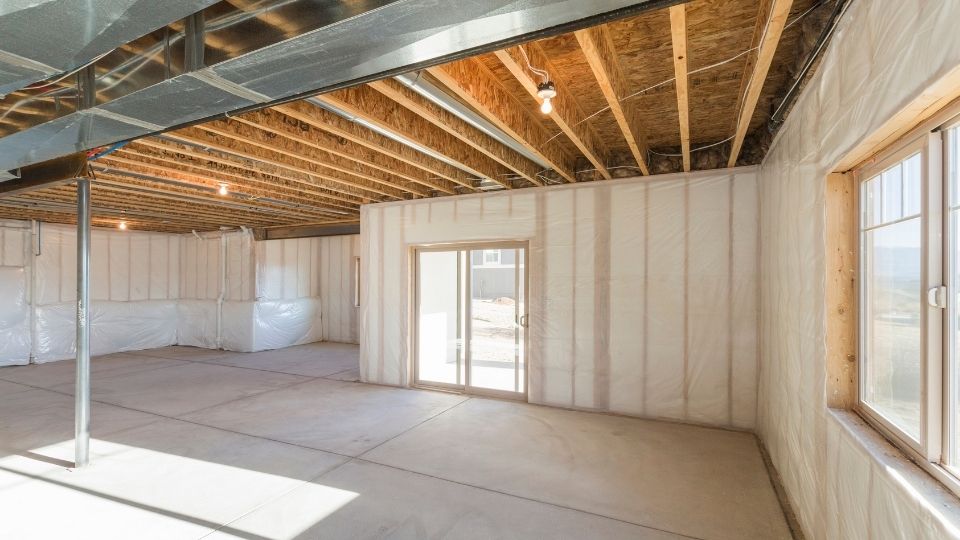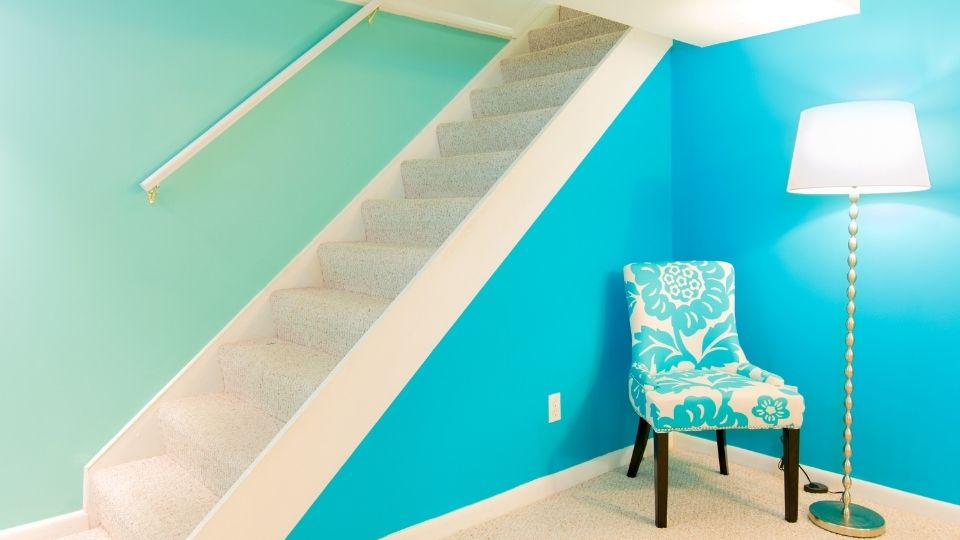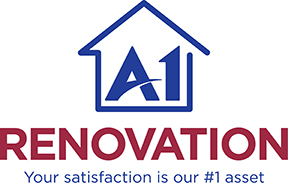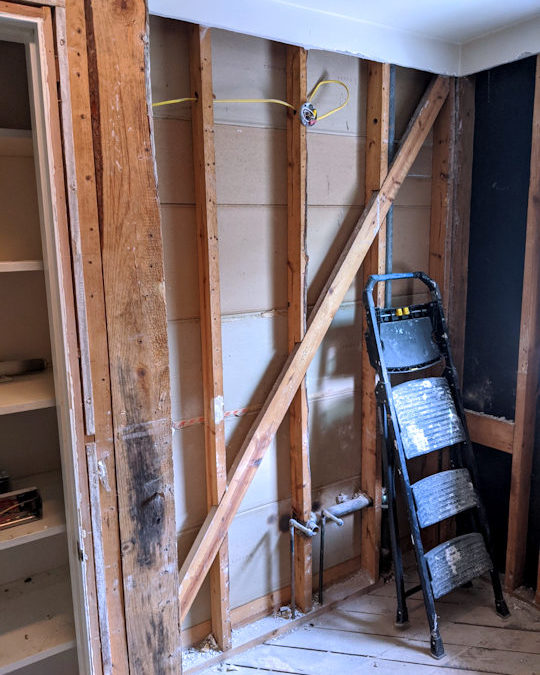With the increased time spent at home over the last year, you may have started daydreaming about changes or upgrades to your home that can give you more room to spread out.
Need more space to work from home? A man cave? An art studio? A workshop? A play room for the kids?
If you have a basement, you may be itching to turn it into usable space.
Creating a finished basement is a common type of remodel goal homeowners have, but it’s also one that can require some real expertise.
As a quick overview, here are some scenarios that constitute an unfinished space:
- Exposed ceiling studs or plywood
- Walls are concrete or painted concrete rather than drywall/sheetrock
- Area is not directly heated by HVAC system
- Area is not directly accessible via permanent stairs (e.g. requires a ladder or outside hatch to enter
There are more things to consider, but those are the basics.
It’s also important to note that even if you’re using an unfinished basement as a living space (bedroom or den) it doesn’t count as a “finished” space if the above things are true. Also, if the area is going to officially be deemed a bedroom for the purposes of how you can advertise your home, it often must feature a window or method of egress.
Call us today for a quick phone discussion to review the particulars for converting your unfinished basement into a finished living area. 336-893-5901
What are the benefits to converting an unfinished basement?
Finishing your basement brings with it a few key benefits for your home overall:
- Properly finished basements are more resistant to mold (particularly because they are climate controlled)
- Finished basements add value to the house and add square footage (the amount of square footage of living space you can list your house at includes only finished space)
- Finished basements generally insulate sound fairly well, which makes them ideal for dens and living rooms so that noise doesn’t bother others in the rest of the house
One caveat to be aware of for the point about a finished basement adding to property value is that will also increase your property taxes — since your home is now worth more and has higher official square footage. It’s not a major difference in many cases, but we like everyone to have all the information.
Some estimates say, however, that finishing a basement an add around 50% of the above-ground value to the home. (Source) That’s a heck of a conversion.

We can help you with all phases of finishing a basement, including:
Framing the unfinished space.
If the space is not already properly framed for support/stability and to accommodate regular walls and electrical systems, you’ll need to start here.
Framing involves several important steps:
- Protecting against the foundation’s cool masonry walls without creating moisture problems.
- Creating protective structures around posts, heating ducts, and pipes.
- Creating easy access to necessary valves.
We can inspect your basement to determine whether you need to frame the space or not, and what will be involved in making it happen.
Running the electrical for modern standards.
Your unfinished basement might already have some lighting and outlets, but steps are needed to safely meet modern electrical standards needs.
Running electrical is incredibly tricky (and dangerous!), which is why we recommend that you bring in professionals to assist with this stage. Having a professional assisting you from the beginning will make sure that you don’t have to worry about unexpected damage or expenses.
Finishing the space with Plumbing.
If there’s going to be sinks or toilets in your basement, you’ll need to add the space to your overall plumbing system.
Doing this properly without worry for leaks, clogs, or interfering with other aspects of the framing takes experience.
Covering Exposed Areas With Drywall.
This is the cornerstone to any finished wall space. From hanging drywall to finishing and painting it, we can get you what you need.
While it’s certainly doable to paint walls without dripping onto the floor with proper coverings, it’s still often easier to handle the walls before the floors.
Trim, doorways, and flooring.
This is another very visible hallmark of a finished space. Choosing trim and putting it perfectly in place, and then painting it, is another area we can help.
You’ll also need to decide between tile, concrete, or carpeting for your floors. We can provide direction on which flooring type will best fit your lifestyle.

A Finished Living Space Requires Ample Lighting.
Basements rarely have much natural light, which means that your lighting options need to work extra hard to make the space feel open and inviting. Thinking about how a room will function will guide you in your decision-making about lighting.
Ultimately, lighting can take your finished basement to a room that you tolerate to a room that you love to be in.
Excellent lighting solutions include:
- Recessed lighting. “Recessed” means that light fixture is installed above the ceiling and casts light indirectly into the room. Larger sizes can be used for broad general lighting. Smaller sizes can be used as spotlights to direct the focus of the room.
- Track lighting: Track lights mount several (the amount is variable) fixtures to one central strip. From the track, the fixtures can be angled to shine light in any direction.
- Pendant: Pendant lights hang down from the ceiling. These lights often serve better as a design element rather than an actual light source, as they don’t offer much light for the rest of the room. They often work best over a bar.
- Flush Mount: This is what you traditionally think of when you think of a ceiling light. Often paired with a fan, these lights hang just below the ceiling and are very effective at lighting an entire room.
- LED lighting. LEDs offer longer bulb lifespans and energy savings than traditional incandescent bulbs.
- Accessory lighting. Of course, if you aren’t content with the built-in lighting features available, you can always purchase table and floor lamps that bright light precisely where you want it. Lamps can also easily create different moods, as well as be powerful and surprising design elements.
Carpet tiles to complete the look.
If you are considering turning your finished basement into a den or living room, you may want the soft feel of carpet to make it easier to walk around barefoot.
However, the moisture in basements can make carpet a difficult flooring option. Mold and water leaks mean you would have to pull up the entire carpet to make any repairs.
To solve this problem, consider carpet tiles! Carpet tiles are easy to remove if there is water damage. Plus, many carpet tiles are made of water-resistant materials like polyester or nylon.
Polishing or painting pipes for a professional, coordinated look.
Depending on the framing and design of your basement, you may still have some exposed pipes in your finished basement. Luckily, these pipes can be painted with waterproof paint.
Your contractor can make sure that pipes are painted to match the color of the rest of the room. This task is actually no easy feat. Do-it-yourselfers always seem to miss at least one spot, which can become a distracting eyesore.
Stair remodels.
Is the scariest part of your unfinished basement the stairs? A stair remodel will include replacing any damaged or rotting steps plus tailoring the appearance of your stairs to match the rest of the room.
Carpet can be removed or added, depending on your taste. Railings can be shored up or replaced with a fresh new look. Steps can also be stained or painted.

Why Choose A-1 Renovation?
Renovation projects can be pretty tough to keep track of. Our extensive experience allows us to anticipate snags and timelines, simplifying the moving parts and making it far easier to finish on time and affordably. We save property owners money by creating efficient work flows and by foreseeing potential challenges that may have otherwise led to surprise expenses.
At A-1 Renovation, we’ve offered first-class renovation and maintenance services for Winston-Salem homes and commercial property owners for over 20 years. We also assist regional property management companies throughout North Carolina, South Carolina and Virginia. We’re licensed, insured, and fully committed to detailed project management.
Call us today for a quick phone discussion to review the particulars for converting your unfinished basement into a finished living area. 336-893-5901
This post is part of a series where we share examples of projects we’ve worked on. Click the link if you’d like to see more of them.


